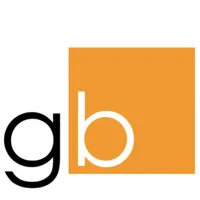Coinstash

- Trade ETH and 1179 other cryptos.
- Crypto bundles: buy grouped coins in key categories.
- Access trending coins with DeFi Connector.
Finder analyses expert price predictions each quarter. We surveyed 19 crypto industry specialists in October 2025 to get their thoughts on how Ether (ETH) will perform through 2035.
All prices mentioned in this report are denominated in US dollars.
On average, our panel thinks Ether will be worth $5,034 by the end of 2025 before rising to $10,980 by year-end 2030 and then $19,017 by 2035.
Bitcoin Price Predictions: October 2025
ETH's price is expected to rise to $5,034 by year-end 2025, according to the average prediction from Finder's panellists. This prediction is a little more bullish than their end-of-2025 prediction of $4,308 in the July 2025 report.
The panellists also predict ETH will hit $10,980 by 2030 and $19,017 by 2035. The panel is slightly more bullish than their average predictions from our July 2025 survey over the next five years, when they projected ETH to reach $10,882 by 2030, but has a more tepid view for ETH's price by 2035 ($22,374).
Johnny Gabriele, founder of Daedalus, is one of our more bullish panel members, predicting ETH to hit $8,000 in 2025 on the back of "momentum, increased interest, institutional adoption."
Mitesh Shah, the founder and CEO of Omnia Markets, is also bullish on ETH's price in 2025, saying it'll end the year at $7,450.
My forecast for Ethereum is based on its position at a pivotal moment of technological maturation and accelerating institutional integration. The rationale is built upon three core pillars: the Pectra upgrade's role as an institutional catalyst, Ethereum's entrenched dominance in high-value ecosystems and its successful execution of a modular scaling strategy.
Sathvik Vishwanath, the CEO of Unocoin Technologies, is also on the high side of the panel at $7,000 based on "Ethereum's technical upgrades (layer-2 scaling, Pectra, rollups), growing institutional interest, DeFi expansion and macroeconomic trends."
At the other end of the spectrum is John Murillo, the chief business officer of B2BROKER, whose prediction is the lowest of the panel at $2,700 and "is grounded in a sober assessment of Ethereum's evolving role in the digital asset ecosystem."
While Ethereum remains the foundational layer for decentralised finance and smart contracts, its long-term price trajectory is shaped less by hype and more by structural realities. That said, Ethereum's roadmap — particularly upgrades like Pectra, advancements in account abstraction and ongoing rollup-centric scaling — is likely set to boost usability and network efficiency. These technical milestones are likely to support moderate price increases, but we shouldn't expect any explosive growth.
Our panellists predict that ETH's average peak price in 2025 will be $5,572, with some predicting it will climb as high as $9,999.
Over two-fifths (44%) of our panellists feel that ETH's price will be in the $4,000 to $4,999 range at its highest before the close of 2025, while a fifth (22%) either say ETH's price will pop at a range of either $5,000 to $5,999 or $7,000 to $7,999.
Nicole DeCicco, the CEO of CryptoConsultz, provides a max prediction of $7,500 in 2025 for ETH for its role in real-world asset tokenisation.
Ethereum is no longer just a platform for experimentation. It's become essential infrastructure for the tokenisation of real-world assets, stablecoins and DeFi, all sectors that are seeing renewed institutional interest. Ethereum's upside is capped in the short term by macro uncertainty and potential competition, but its growing treasury, ecosystem maturity and centrality to tokenised finance keep the long-term view strong.
Josh Fraser, cofounder of Origin Protocol, sees ETH hitting $6,600, as it has more growth runway than BTC.
Ethereum's value is still underpriced relative to its fundamentals — unlike Bitcoin, it captures both monetary premium and real economic activity across DeFi, stablecoins and staking. With scaling and restaking driving new demand, ETH has more growth runway than BTC, and at a Bitcoin-level market cap, ETH would trade above $50,000.
The lowest price our panellists predict that ETH will hit in 2025 is $3,516 on average, with some individual panellists forecasting it will fall as low as $1,482.
The majority of the panel (83%) think ETH's price bottom for the remainder of the year is somewhere between $3,000 and $3,999 in 2025.
Shubham Munde, senior research analyst at the Market Research Future, provides the highest bottom prediction for ETH for the remainder of 2025 at $4,200:
ETH is expected to grow due to wider adoption of DeFi and smart contracts, ongoing network upgrades improving scalability and increasing institutional investment.
While John Hawkins, Head of the Canberra School of Government at the University of Canberra, predicts ETH will bottom out at $3,500 (in line with the average low prediction). He says ETH remains a speculative bubble and predicts ETH could drop to $3,500 before the year is out.
Like bitcoin, whose price movements it tends to mirror, Ether has failed to become a significant payment instrument and failed to become a reliable store of value. It remains a speculative bubble, and while I have no idea when it will burst, its lack of any underlying value means price falls are more likely than rises.
Kadan Stadelmann, CTO of Komodo Platform, says ETH's price bottom sits around $2,000 as ETH is still an altcoin.
Despite the progress and growth the market has seen in the last few years, Ether is still an altcoin that largely follows bitcoin. Exchange-traded fund (ETF) news and institutional interest in Ethereum will continue to drive market activity up as we enter the final phase of this bull run.
ETH is trading above the lows of April 2025, which is probably why only 42% of the panel say it's time to buy ether, with 32% saying it's a hold and 26% believing it's a good time to sell.
Ben Ritchie, managing director of Alpha Node Global, says ETH is a buy off the back of strong staking demand.
Ethereum's outlook reflects its role as a yield-bearing asset and leading smart contract platform. A 2025 target of $6,000 is supported by ETF inflows, strong staking demand and low net issuance from fee burns. With 29% of supply staked and growing institutional use in tokenisation and regulated DeFi, supply remains tight.
Joseph Raczynski, a futurist at JT Consulting & Media, says ETH is a hold as "It's all about the institutions. In my meetings, nearly every institution is testing or about to use Ether."
Daniel Keller, the CEO of InFlux Technologies, is also in the hold camp saying:
Ethereum's price hasn't fluctuated beyond a range of a few hundred dollars up or down in recent months as investors fear rising inflation and can't afford Ethereum gas fees. Ethereum's price is staggered, hence why my predictions aren't massive leaps in gains or significant drops.
Alexander Kuptsikevich, chief market analyst at FxPro, says ETH is a sell as it's not a great time to be investing in the token.
Ethereum is a risky bet that suffers in times of deleverage and back-to-the-basics, which is around the corner.
A little over half the panel (53%) say that Ether is currently underpriced, with the remaining panel members either saying it's fairly priced (26%) or overpriced (21%).
Ruadhan O, the founder of Seasonal Tokens, says that ETH's price is undervalued and will continue to benefit from BTC's bull run.
Ether will benefit if the bitcoin bull run continues due to price correlation, while the regulatory clarity regarding stablecoins and greater institutional adoption will probably bring money into the Ethereum ecosystem and support the ETH price independently of the broader crypto market.
Ruslan Lienkha, the chief of markets at YouHodler, says that ETH is fairly priced as we're nearing the end of the bull cycle:
I don't expect any major changes from regulators, new technologies or adoption trends by the end of this year. At the same time, I believe we are approaching the end of the bullish phase in the broader markets. As a result, concerns about further growth potential are likely to increase in the coming months, and we may see rising macroeconomic pressure across all markets, including crypto. This could hinder the continuation of the current growth trend.
Desmond Marshall, the managing director of Rouge International & Rouge Ventures, says that ETH is overpriced and suffers from market manipulation:
I've said many times that ETH is HEAVILY MANIPULATED by tech updates, which is NOT a favourable process. ETH is lucky that it remains 2nd on the list and that the Treasury and institutions will HAVE to use/buy it for diversification from the very get-go. But the continuous tech manipulation is a turnoff for many long-term investors. The reduced popularity of blockchain projects (in favour of AI projects) does not help ETH in such a way, which actually makes it more questionable: why the constant tech updates to it?
When asked what our panel sees as the most important factor for ETH's price outlook through the end of 2025, the majority of the panel (63%) said ETH's price will be most heavily impacted by institutional inflows (ETFs, treasuries, staking products).
The majority of the panel (58%) don't see it as likely that Ethereum will lose market share to competing Layer-1 blockchains in the next year, with 42% saying it is somewhat unlikely and 16% saying it's very unlikely.
Weak institutional inflows (53%) are the number one factor cited by the panel stopping ETH from breaking through the $7,000 barrier.
Ethereum treasury holdings have surpassed $18 billion, and the overwhelming majority of the panel (83%) think ETH will continue to be the cryptocurrency of choice for diversified treasury management.


Shubham Munde
Shubham Munde


Ruadhan O
Ruadhan O


Mitesh Shah
Mitesh Shah


Desmond Marshall
Desmond Marshall


Ben Ritchie
Ben Ritchie


Ruslan Lienkha
Ruslan Lienkha


John Murillo
John Murillo


Johnny Gabriele
Johnny Gabriele


Lee Smales
Lee Smales


Nicole DeCicco
Nicole DeCicco


Josh Fraser
Josh Fraser


Daniel Keller
Daniel Keller


Sathvik Vishwanath
Sathvik Vishwanath


Kadan Stadelmann
Kadan Stadelmann


John Hawkins
John Hawkins


Alexander Kuptsikevich
Alexander Kuptsikevich


Bilal Hammoud
Bilal Hammoud


Joseph Raczynski
Joseph Raczynski


Simon Peters
Simon Peters


Craig Cobb
Craig Cobb


Jeremy Eng-Tuck Cheah
Jeremy Eng-Tuck Cheah


Chloe White
Chloe White